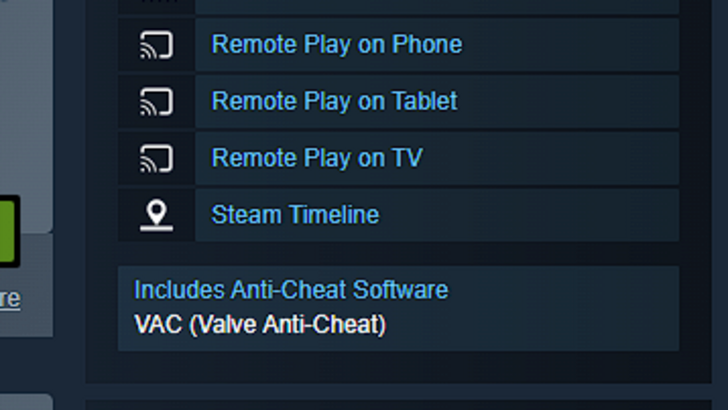
Steam now requires all developers to disclose whether their games utilize kernel-mode anti-cheat, a system sparking considerable debate among players. This article explores Steam's recent platform update and the ongoing discussion surrounding kernel-mode anti-cheat.
Steam's New Anti-Cheat Disclosure Tool
Mandatory Disclosure for Kernel-Mode Anti-Cheat

Valve's recent Steam News Hub announcement introduced a new feature requiring developers to specify their game's use of anti-cheat software. Accessible via the Steamworks API's "Edit Store Page" section, this allows developers to indicate whether their game employs any anti-cheat measures. While disclosure for non-kernel-based systems remains optional, the mandatory declaration for kernel-mode anti-cheat directly addresses player concerns about privacy and system intrusion.

Kernel-mode anti-cheat, which directly examines processes on a player's device to detect malicious activity, has been a source of contention. Unlike traditional methods focusing on in-game behavior, kernel-mode solutions access low-level system data, raising concerns about performance, security, and privacy. Valve's update reflects feedback from both developers seeking clear communication channels and players demanding greater transparency regarding anti-cheat implementations and associated software installations.
Valve's official Steamworks blog post explains the change as a direct response to developer and player requests for clearer communication about anti-cheat information and installed software. This enhances transparency and provides players with more informed choices.
Mixed Reactions to the Update

Launched on October 31, 2024, at 3:09 a.m. CST, the update is already live. As shown in the example of Counter-Strike 2's Steam page, the use of Valve Anti-Cheat (VAC) is now clearly displayed.
While many users applaud Valve's "pro-consumer" approach, the rollout isn't without criticism. Some commenters pointed out minor inconsistencies in the display, such as wording choices (like the use of "old" to describe games that might update this information).

Practical questions remain, including how the labels will handle translations and the precise definition of "client-side kernel-mode" anti-cheat—with PunkBuster cited as a notable example. The ongoing debate about the invasiveness of kernel-mode anti-cheat also continues.
Despite initial mixed reactions, Valve's commitment to pro-consumer platform changes is evident, as demonstrated by their transparency regarding recent California legislation protecting consumers from misleading digital goods advertising. Whether this new feature fully addresses community concerns about kernel-mode anti-cheat remains to be seen.
















